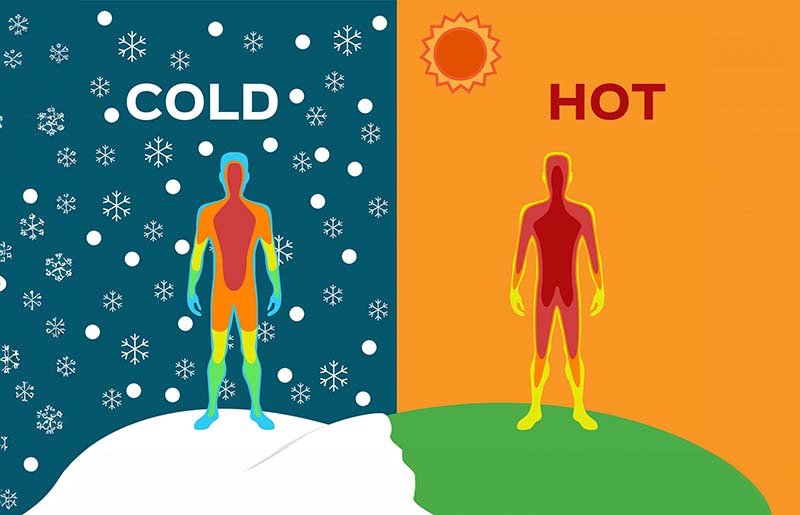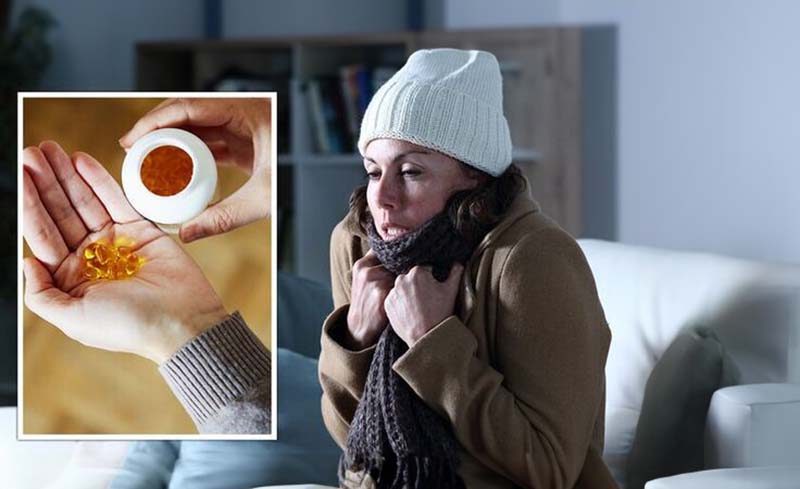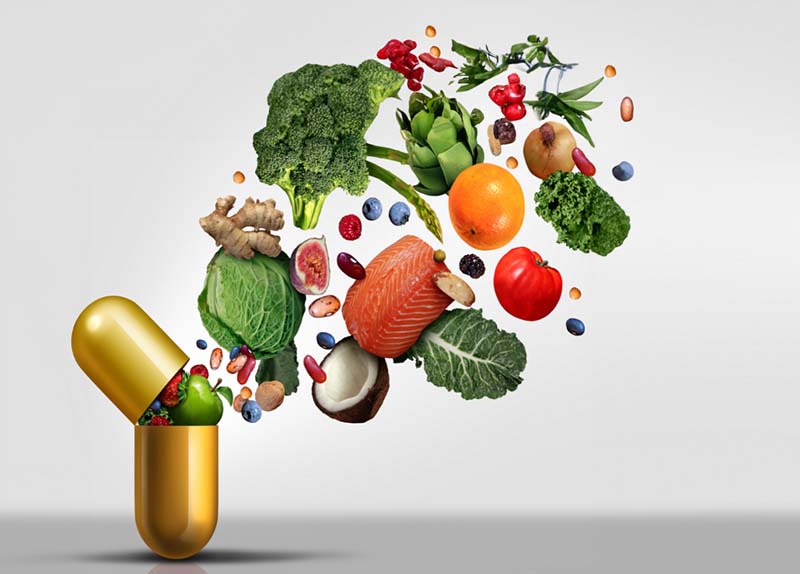Have you ever felt cold and wondered why? It could be a sign that your body is lacking a certain vitamin. But which vitamin, and why does it cause you to feel cold? Don’t worry, Biosculpture’re here to answer all your questions. With our extensive expertise and credibility in the health field, we will provide you with the most detailed and accurate information about this issue. Let’s explore ‘What Vitamin Deficiency Causes You to Feel Cold?’ to understand the cause, consequences, and remedies. In this way, you’ll not only gain a better understanding of your body but also learn how to take care of your health in the best possible way
1. Understanding Body Temperature Regulation
To get a grip on how certain vitamins might ease your sensation of feeling cold, it’s essential to first grasp the basics of body temperature regulation.
1.1 How Your Body Regulates Temperature?
Our bodies use a mechanism known as thermoregulation to keep our internal temperature balanced, usually around 98.6 degrees Fahrenheit. This is crucial for humans, as it allows our systems to function optimally.
Under normal conditions, our bodies do an excellent job of keeping our temperature within a safe range. Yet, there are instances when internal or external factors interfere with this balance, leading to fluctuations in body temperature.

1.2 Factors That Can Disrupt Your Body’s Temperature Regulation
Several elements can throw off your body’s thermoregulation, such as:
- Illnesses caused by viruses and bacteria
- Extreme temperatures in the environment
- Lack of essential vitamins and nutrients
Note: Understanding these factors is key to identifying why you might feel colder than usual and how to address it effectively. Vitamins play a pivotal role in this balance, and their deficiency can be a less obvious culprit in disrupted thermoregulation.
2. How Vitamins and Nutrients Affect Temperature Regulation

2.1 Vitamin B12 Deficiency Can Lead to Feeling Cold
Vitamin B12 plays a crucial role in producing red blood cells, which are key to transporting oxygen around your body. A deficiency in Vitamin B12 can result in feeling unusually cold due to insufficient red blood cells.
This deficiency is common, affecting about 15% of individuals. It often leads to pernicious anemia, characterized by a reduced red blood cell count.
Vitamin B12 deficiency arises from:
- Inadequate intake through diet or supplements
- Issues with absorbing vitamin B12
- Certain health conditions affecting absorption
Low levels of vitamin B12 can cause poor oxygen delivery, making your hands and feet feel icy. Other symptoms include tiredness, pale skin, breathlessness, and numbness.
Addressing this deficiency requires vitamin B12 supplementation through shots, nasal sprays, or pills. Eating B12-rich foods like meats, eggs, and dairy also helps you avoiding catching a cold.

2.2 Iron Deficiency Can Make You Feel Cold
Iron is essential for producing hemoglobin in red blood cells, crucial for oxygen transport. Iron deficiency, leading to iron deficiency anemia, is the most widespread nutritional deficiency globally.
Iron deficiency hinders hemoglobin and red blood cell production, affecting the blood’s ability to carry oxygen and causing a cold sensation in extremities.
Symptoms of iron deficiency include:
- Fatigue and weakness
- Pale skin
- Headaches and poor focus
- Breathlessness and rapid heartbeat
Women, especially those with heavy menstrual cycles, pregnant women, infants, and vegetarians, are more prone to iron deficiency.
Enhancing iron levels can be achieved through dietary changes and supplements, incorporating foods like meats, seafood, nuts, and fortified cereals. Severe cases might require intravenous iron.

2.3 Vitamin B9 (Folate) Deficiency Can Make You Feel Cold
Vitamin B9 or folate is vital for red blood cell production. A deficiency can impair circulation, leading to feeling cold.
Folate deficiency causes include:
- Diets low in fruits, veggies, and fortified grains
- Medical conditions affecting nutrient absorption
- Certain medications and alcohol misuse
Symptoms of folate deficiency encompass fatigue, weakness, headaches, heart palpitations, and tingling sensations.
Treating folate deficiencies involves increased intake through fortified foods, supplements, or injections. Pregnant women should pay particular attention to folate levels.
2.4 Vitamin C Deficiency Can Lead to Feeling Cold
Vitamin C, known for its antioxidant properties and immune support, is also linked to temperature sensitivity.
Causes of vitamin C deficiency include:
- Poor intake of fruits and vegetables
- Smoking, which lowers vitamin C levels
- Health conditions that increase vitamin C needs
Symptoms beyond cold sensitivity include frequent infections, fatigue, joint pain, slow healing, and anemia.
Ensuring sufficient vitamin C intake through citrus fruits, peppers, broccoli, strawberries, and supplements is crucial. The recommended daily intake is between 75-90 mg for adults.
2.5 Can Vitamin D Deficiency Make You Feel Cold?
Vitamin D, essential for calcium absorption and bone health, also influences circulation. A deficiency can result in a cold sensation.
Around 40% of adults experience vitamin D deficiency, caused by factors like limited sun exposure, obesity, and certain health conditions.
Vitamin D deficiency can lead to numbness, tingling in extremities, and poor circulation.
Additional symptoms include frequent infections, tiredness, bone/muscle pain, and mood changes. Sun exposure, consuming vitamin D-rich foods like fatty fish and egg yolks, and supplements can help increase levels.

3. Other Causes That Can Make You Feel Cold

3.1 Thyroid and Blood Flow
A common reason for experiencing cold intolerance is issues with the thyroid gland. This gland plays a critical role in regulating body temperature and managing blood flow. When your thyroid isn’t working as it should, you might find your hands and feet are often cold, or you may feel chilly all over.
If you’re frequently cold and suspect your thyroid might be the cause, consulting a doctor for thyroid function tests is a wise step.
3.2 Anemia Due to Vitamin Deficiency
Feeling constantly cold can also be a sign of vitamin deficiency anemia. This condition arises when you don’t have enough healthy red blood cells to transport oxygen efficiently around your body.
Vitamin deficiency anemia often stems from poor iron intake or absorption issues, which can be linked to dietary gaps or digestive disorders like celiac disease or inflammatory bowel disease (IBD). Iron deficiency not only makes you feel cold but can also lead to decreased muscle mass and a weaker immune system.
Note: Regular blood tests can help detect anemia early, and dietary adjustments or supplements might be recommended to manage this condition.
3.3 High Blood Pressure
High blood pressure, or hypertension, might be another culprit behind feeling colder than usual. Elevated blood pressure can limit blood flow in your body, affecting how warm or cold you feel, especially during rest or physical activity.
Moreover, certain medications used to treat high blood pressure can have side effects that include increased cold sensitivity. This is often due to their impact on circulation and body temperature regulation.
Note: Monitoring blood pressure and discussing medication side effects with your healthcare provider can help in managing these symptoms effectively. Regular exercise and a balanced diet are also key in controlling high blood pressure.
4. Identifying and Addressing Vitamin Deficiencies
Promptly recognition and treatment of Vitamin Deficiencies are crucial for enhancing overall well-being and health.

4.1 How to Recognize If You Are Deficient in a Certain Vitamin
To figure out if you’re lacking essential vitamins or nutrients, watch for signs in your overall health. Changes in weight, energy levels, skin or hair condition, and mental sharpness could signal a deficiency.
If you suspect you’re not getting enough nutrients, it’s wise to consult a doctor or a nutritionist. They can pinpoint specific deficiencies and suggest dietary changes for better nutrient intake.
Remember, a variety of vitamins and minerals are available in everyday foods, and focusing on a balanced diet can help maintain your health.

4.2 How to Add Appropriate Vitamins to Your Diet
Incorporating a diverse range of vitamin-rich foods is key. Here are some suggestions:
Vitamin B12 Found mainly in animal products, options include:
- Red meat, especially liver
- Poultry and fish like salmon and tuna
- Dairy products
- Eggs
- Fortified foods such as cereals and plant-based milk
Vegetarians or vegans might need a B12 supplement or fortified foods.
Iron Iron in food comes in two types: heme (from animals) and non-heme (from plants). Include:
- Red meat and liver
- Poultry
- Seafood like oysters and clams
- Legumes, spinach, and kale
- Iron-fortified cereals and bread
- Pumpkin seeds and quinoa
Pair non-heme iron with vitamin C-rich foods for better absorption.
Vitamin B9 (Folate) Folate sources include:
- Dark leafy greens
- Legumes
- Asparagus and beets
- Eggs
- Citrus fruits
- Nuts and seeds
- Fortified grains and cereals
Vitamin C Plentiful in fruits and vegetables:
- Citrus fruits
- Strawberries, kiwi, pineapple
- Bell and chili peppers
- Tomatoes
- Broccoli, Brussels sprouts, cauliflower
Vitamin D Though few foods naturally contain it, some sources are:
- Fatty fish like salmon, mackerel, sardines
- Fish liver oils
- Egg yolks
- Fortified milk, orange juice, and cereals
Sun exposure also boosts vitamin D, but balance it with skin health considerations.
If diet alone doesn’t meet your vitamin needs, supplements can be an option. However, aim for a balanced diet first and consult a healthcare provider before starting supplements, as excessive vitamin intake can have side effects.

5. Conclusion
In conclusion, understanding “What Vitamin Deficiency Causes You to Feel Cold?” is crucial in addressing this common issue effectively. By being aware of how deficiencies in vitamins like B12, B9, C, D, and minerals like iron can impact our body’s temperature regulation, we can take proactive steps towards a healthier lifestyle. Remember, if you’re constantly feeling cold, it might be more than just the weather – it could be a sign that your body is missing vital nutrients.
We’d love to hear your experiences and insights on this topic. Have you ever dealt with cold intolerance due to vitamin deficiency? Share your stories and feedback with us. Your input not only enriches our community but also helps others who might be facing similar challenges.
For more insightful and informative content, don’t forget to explore other blogs from Biosculpture. We’re committed to bringing you valuable information that can make a difference in your health and wellbeing. Stay informed, stay healthy!


